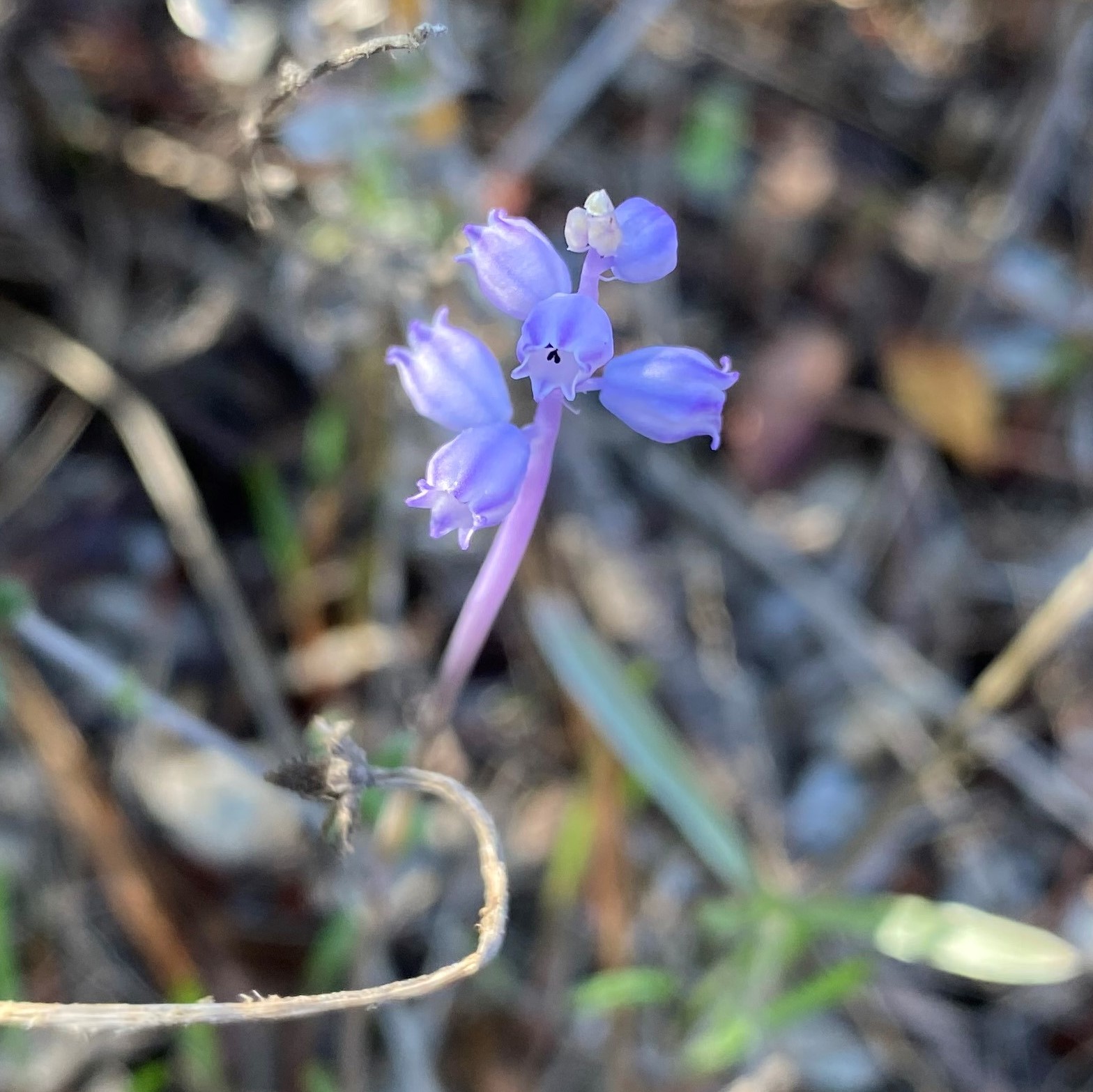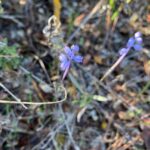Μουσκάρι το μικρανθές
Etymology of Muscari parviflorum: The name of the genus, Muscari, comes from the Greek word "μόσχος" [moskhos] for "musk", referring to the scent produced by the flowers of many species in the genus. The specific epithet "parviflorum" derives from the Latin "parvus" and "floris", meaning "bearing small flowers".
At least five Muscari species/kinds have been found so far in Cypriot nature and it is being examined whether there is a fifth one.
Muscari parviflorum is a perennial and bulbous plant reaching up to 25cm high, even though it usually reaches half of this height. It is the only species of this genus that blooms in Autumn. Its stem is erect, hairless, cylindrical and purple. The leaves grow from the base, surround the stem, appear just before flowering and are 3 or 4. The flowers appear in a sparse raceme and they are hermaphrodite, with a bell-shaped perianth. It bears capsules.
Muscari parviflorum grows at a maximum altitude of 175 metres only. It is found around the perimeter of Cyprus except for the southeastern and northwestern parts of the island. It is found in uncultivated or cultivated fields, open grasslands and hillsides. Its flowering period is between October and December.


